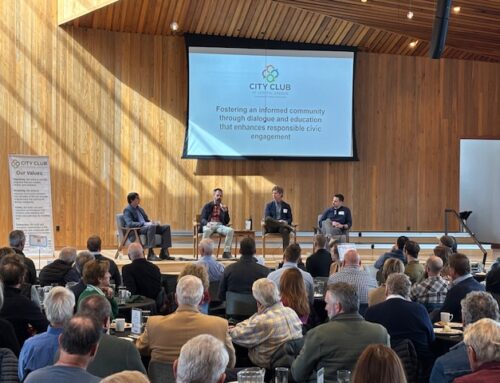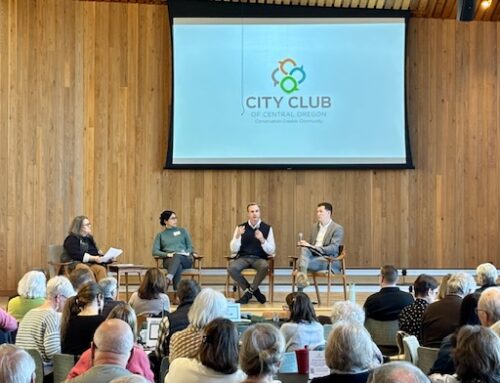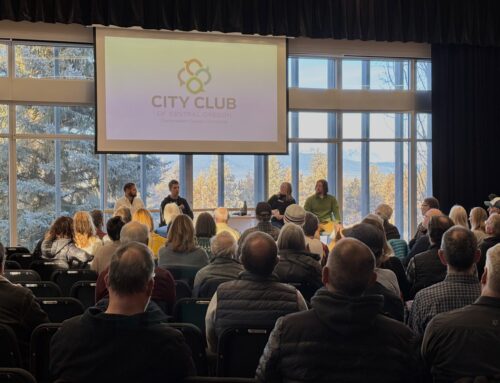On September 11, City Managers from Central Oregon’s largest communities gathered for a spirited conversation on their roles and the challenges facing their cities and the Central Oregon region as a whole. Bend’s Erik King started the forum with an overview of the role of a city manager. Within their individual municipalities, managers are responsible for implementing policies set by governance and managing the day-to-day operations that are below the waterline and most members of the public are unaware of.
But City Managers also work collaboratively with their counterparts across the region to help solve problems across the Central Oregon region. Furthermore, each city, regardless of their size, works with their respective county governments at various levels in sharing services that the county offers. Geoff Wullschlager, City Manger for La Pine, confirmed this and went a step beyond stating that the further away the municipality is from the region’s center, the stronger their relationship is with the county. A common thread among all the managers was that regardless of their size, the cities all have a dedicated staff aligned in reaching each of their goals.
Another partner that cities need to develop close relationships with is the federal government. Geoff pointed out La Pine’s work in developing emergency response plans to wildfires, in particular for the Darlene 3 Fire where they worked with the community and federal government in setting up procedures and innovative emergency responses. One approach in particular included allowing planes to tap into the wastewater lagoon to fight the fire earlier this summer.
City Managers also stressed the importance, and obstacles, in ensuring that all types of infrastructure was appropriately planned and funded.
Will Ibershof of the City of Madras noted how his city was investigating ways to help fund infrastructure, including revisiting a prepared food tax that was abandoned when the pandemic hit. Steve Forrester, City Manager of Prineville, stressed “getting ahead of the game” with infrastructure projects so that necessary services are available when growth occurs. He commented on how working with other agencies and organizations such as the Deschutes River Conservancy and local irrigation districts is key to making sure that infrastructure is shovel ready before it is needed. Jordan Wheeler, City Manager for Sisters, concurred that finding innovative methods to fund infrastructure projects and not solely relying on system development charges, was critical in ensuring future resiliency. Keith Witcosky, the City Manager of Redmond, said that he is always learning from other cities and their infrastructure projects, namely the Prineville’s Crooked River Wetland Complex that is helping expand that city’s wastewater capacity.
At the end of the forum, City Managers were asked what was on the horizon for initiatives and projects. Redmond, in particular, has been a leader in studying the future of water rights in Central Oregon. Erik King stated that the City of Bend is looking into how to leverage artificial intelligence to help with operations. Lastly, the topic of the unhoused was brought up. There was universal agreement that the crisis is a regional issue due to the high availability of public land in Central Oregon and that the managers needed to work together with the County and other agencies in finding common solutions.




























